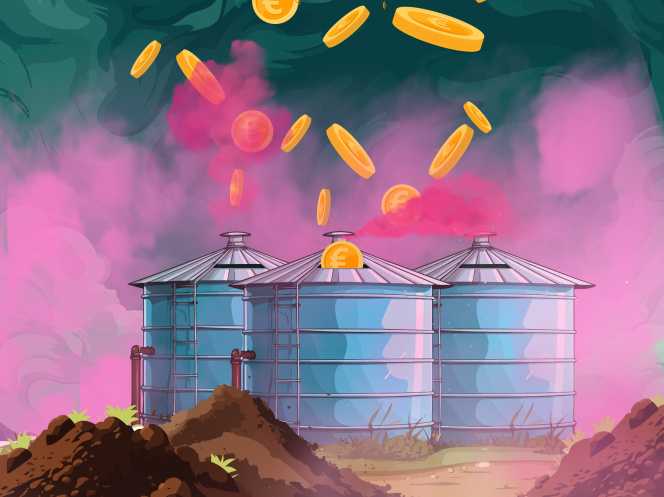Biogas Policies in the EU: Levelling up or locking in?

Summary
The European Union is the global leader in biogas production, with a production volume of 22.8 billion m3 in 2024. Most biogas is derived from the anaerobic digestion (AD) of organic materials such as energy crops, agricultural and food waste, and manure. Methane captured from landfills and sewage sludge also counts as biogas. Biogas is used for generating heat and power and is further upgraded into biomethane, which is comparable to fossil gas. Biomethane is injected into existing fossil gas grids – for use in households and businesses – and is used as transport fuel (as BioLNG).
This report, commissioned by the Methane Matters Coalition, examines the current status of the biogas industry in the European Union (with specific attention to member states Denmark, Germany, Ireland, the Netherlands, Poland, and Romania) and in the United Kingdom. The report analyses the market developments in the EU as a whole and in the seven countries; the environmental impacts of biogas production; the regulatory frameworks applicable; the level at which regulations cover environmental impacts; public financing schemes for biogas; and bank and investor financing for a selection of biogas companies.
You might also like...

The New Merchants of Doubt: How Big Meat and Dairy Avoid Climate Action
This report reveals the tactics of Big Meat and Dairy companies to delay, distract, and derail action on transforming the food system, mirroring strategies used by the tobacco and fossil fuel industries.

Blindspot: How lack of action on livestock methane undermines climate targets
The livestock agricultural sector is the single largest contributor to man-made methane emissions. Enteric fermentation in stomachs of ruminants, such as cows and goats, and manure management is responsible ...

Truth, Lies and Culture Wars – Social listening analysis of meat and dairy persuasion narratives
This study is a deep dive into information and misinformation on social media around production and consumption of animal products.